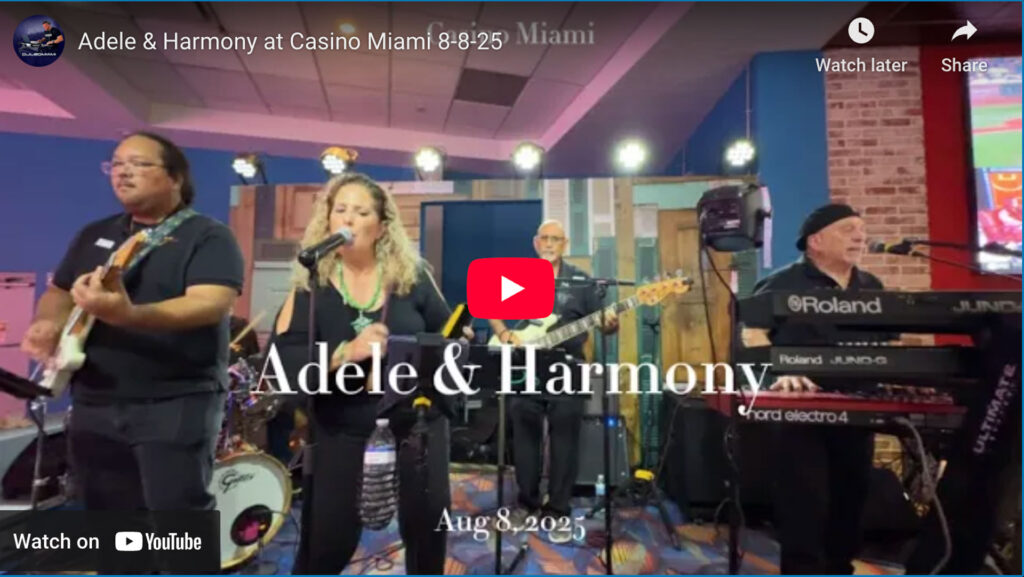When Did We Start Disliking Contemporary Music?
By Alex Gutierrez
Alright, let’s be honest for a second. When did we, the baby boomers, start treating contemporary music like it’s some weird alien transmission? One minute, we were grooving to everything rock, disco, salsa, freestyle, house and the next, we were just like, “Nope, not having it anymore.” What happened? When did the music that once felt like home suddenly turn into a language we couldn’t understand?
Think back with me. As teenagers in the 70s, we were immersed in music. It was our lifeblood. I mean, I was a DJ back then, for crying out loud. Music was constantly evolving, and we embraced it all the new sounds, the changing beats. One minute, it was rock ‘n roll, and the next, disco showed up with its glittering ball, and we were all spinning around to basslines like we had no cares in the world. Salsa was a given, thanks to our parents, and when freestyle hit? We couldn’t get enough of those infectious beats. We were ready for whatever came our way. We danced to anything that made us feel alive, like we had some kind of control in this chaotic world.
But then… it all started to change.
Somewhere along the way, the world of contemporary music left us behind. We were all for change until we weren’t. I’ll never forget hearing a new track one day, and instead of feeling that rush of excitement, I thought, “What in the world is this?” It wasn’t just the genres. It was the attitude, the vibe, the production. Suddenly, the beats were too foreign, the lyrics didn’t connect the way they used to, and let’s not even talk about auto-tune. Seriously, when did every song start sounding like a robot trying to sing a love song? Where did the raw emotion of a guitar riff or the soulful wail of a saxophone go?
Maybe it’s because, as baby boomers, we lived through so many musical revolutions. From rock ‘n roll to the British Invasion, disco fever, the rise of Latin music, and the underground club scene—we saw it all. So, the idea that music could shift so dramatically in such a short time felt… strange. But here we are, in the 2020s, staring at today’s pop stars and asking, What happened to the soul of music? And seriously where did all the instruments go?
It wasn’t just about the styles. It was about identity. In the 70s and 80s, music had meaning. It brought us together, it gave us a soundtrack to our lives, and it spoke to our emotions. But today? Sometimes, it feels disconnected. Maybe it’s because the lyrics don’t hit the same way anymore. Instead of love and heartbreak, all of it is about violence and drugs. I know, we’re becoming our parents—but it’s true. Plus, everything’s so processed now. We grew up with vinyl records and mixtapesm when the crackle of the needle hitting the groove was part of the experience. Now everything’s so polished, but something feels… missing.
Look, I’m not saying today’s music doesn’t have talent. There are brilliant producers and artists pushing boundaries, no doubt. But when did it stop being something we understood and start feeling like something too out of reach? Sure, there’s still great rock, pop, country, blues, jazz even Disco House gives me hope—whatever you like—but you have to hunt for it. Meanwhile, it feels like the charts are just flooded with fluff that doesn’t even scratch the surface of what we know music can be.
Not to say everything old was great, but at least when we looked at the charts back in the day, they actually meant something. There was variety, there were songs for everyone. These days, our musical preferences tend to “lock in” as we get older, making us less likely to embrace new genres like we did in our youth. When I was a teenager, my parents hated the music I loved. They thought it was just noise. My parents would play their songs and say ” Now THAT IS MUSIC ” Ring any bells?
Maybe it’s not even about the music. Maybe it’s about who is listening to it now. As we get older, we’re no longer at the forefront of the trends. The music scene changes, and we’re now the old guard, watching the new generation break boundaries in ways we never expected. Sure, we could try to catch up, but who has the time or energy when it feels so foreign? It’s easier to stick with the classics—those songs that blasted from our radios, the ones that made us feel like we had the world at our feet.
So when did we start turning our noses up at contemporary music? Was it when the sound shifted so dramatically that we couldn’t keep up? Was it when we realized we’d already lived through all the cultural revolutions we needed? Or is it simply the fact that, as we get older, the new stuff just starts to feel less relevant?
For me, I think it all started when rap music shifted from the fun, party vibe to something much darker in my early 30s.
I don’t have all the answers, but I do know this: the 70s, 80s, and 90s were our years. We saw the birth of disco, the rise of salsa, the glory days of freestyle, and the house music era that kept us dancing till dawn. And if the kids today want to blast their auto-tuned tracks or mumble rap, that’s their call. But don’t ask me to hop on that bandwagon anytime soon. I’m still spinning the classics—the tracks that got us up on our feet, the ones that made us feel alive, and reminded us of the magic of music.

